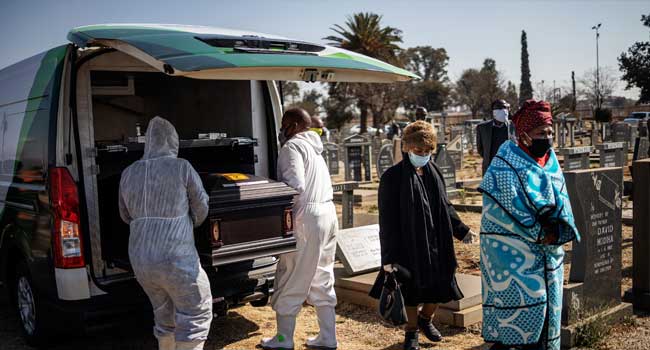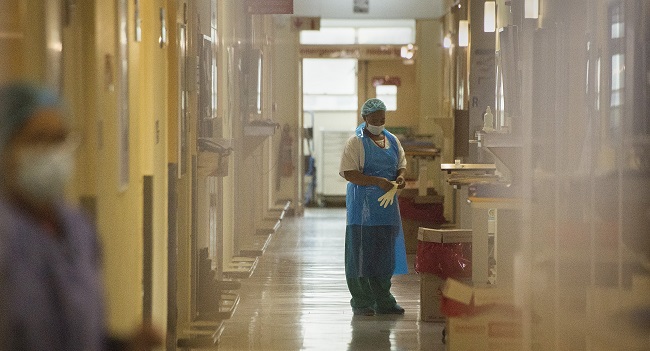
South Africa has recorded a jump of nearly 60 percent in overall numbers of natural deaths in recent weeks, suggesting a much higher toll of coronavirus-related fatalities than officially reported.
“In the past weeks, the numbers have shown a relentless increase – by the second week of July, there were 59% more deaths from natural causes than would have been expected based on historical data,” the South African Medical Research Council (SAMRC) said in a report released late Wednesday.
The report by the council, which is government-funded but an independent unit, came as the health ministry announced a record increase of 572 coronavirus deaths over the previous 24 hours.
The author of the report, Professor Debbie Bradshaw, said “the weekly death reports have revealed a huge discrepancy between the country’s confirmed COVID-19 deaths and number of excess natural deaths”.
South Africa is the worst-affected country in Africa and among the top five in the world in terms of confirmed cases, with 394,948 infections reported to date including 5,940 deaths.
The mortality rate has remained low, however, at around 1.5 percent on Wednesday, according to the health ministry’s daily updates.
The SAMRC is charged with conducting research on disease trends and identifying the main causes of deaths in the country.
“The SAMRC has been tracking mortality for decades in South Africa, and this system has identified excess deaths associated with the COVID-19 epidemic,” said the council’s CEO professor Glenda Gray.
“These may be attributed to both COVID-19 deaths as well non-COVID-19 due to other diseases such as TB, HIV and non-communicable diseases, as health services are re-orientated to support this health crisis,” she said.




